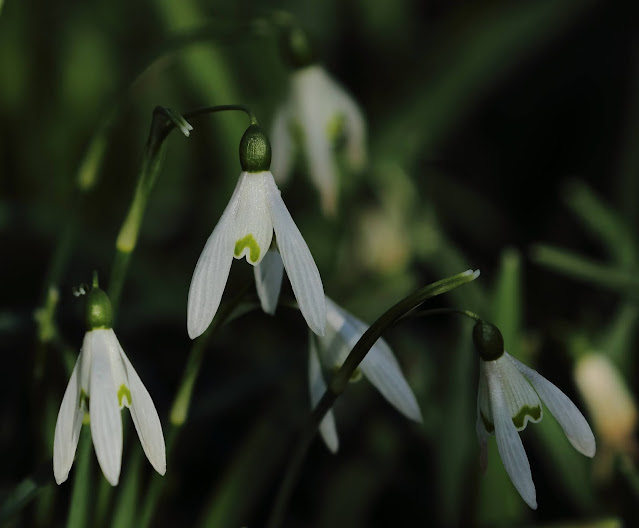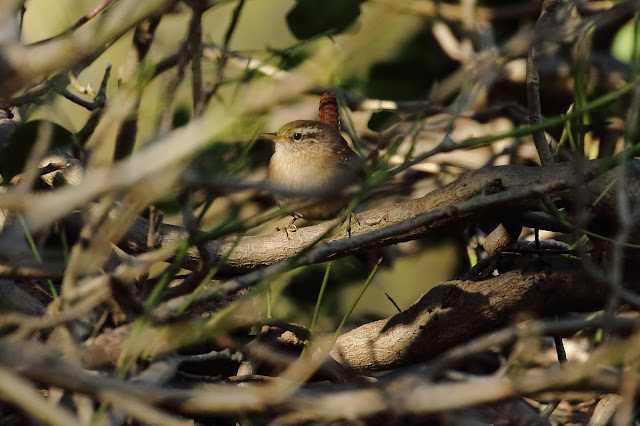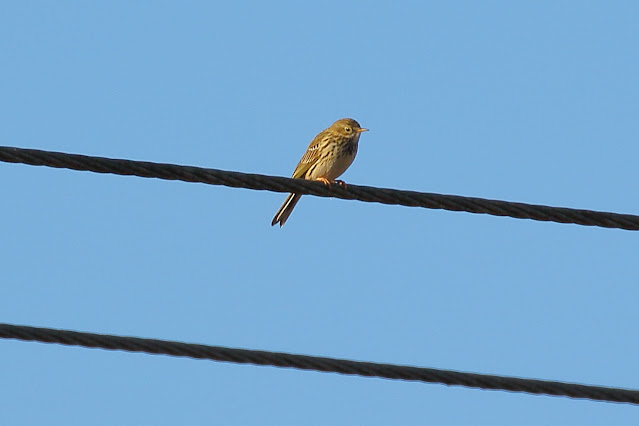Whilst the Aconite flowers were largely over, there were still good clumps of Snowdrop still in flower, and the lovely green glossy leaves of Wild Arum and Dog's Mercury were starting to appear.
Snowdrop
Snowdrop
Wild Arum
Dog's Mercury starting to appear
Small clusters of red 'flowers' covering a Wych Elm tree were also starting to attract the early bees, and the Honey Bee were already very active in the beehives, arriving with pollen sacs loaded with dark yellow or silvery-grey pollen, the latter likely to come from Hazel catkins. And clusters of Seven-spot Ladybird had emerged from their hiding places to bask in the warm sun.
Wych Elm flowers - appearing in Feb-Mar, before the leaves
Honey Bee returning to the hive with pollen sacs obviously filled with yellow and grey pollen
Seven-spot Ladybird emerging to warm up in the sun
Near the sluice, a pair of Muntjac deer were grazing, the male with small but obvious antlers. They didn't stay around long, heading over the river and into Sluice Wood.
Muntjac Deer pair
Female Muntjac Deer
Female Muntjac Deer - heading off
Birdsong was very much in evidence, in particular a large number of Wren, noisily setting up their territories and attracting mates. A Great Spotted Woodpecker was heard drumming on a favorite hollow tree, and the elusive but highly colourful Green Woodpecker could be heard 'yaffling' high from the trees in Lagden's Grove.
Wren
Wren
Green Woodpecker
Around the lake, a small number of Mallard and Moorhen were resting, and Andy put up a Grey Heron that slowly flapped its way across the lake to the reeds, from which male Reed Bunting could be heard calling.
Grey Heron
Grey Heron
On the way back, near Tom's Wood, a small flock of Meadow Pipit were seen resting on the power-lines, before dropping down onto the field below to feed.
Meadow Pipit


















No comments:
Post a Comment